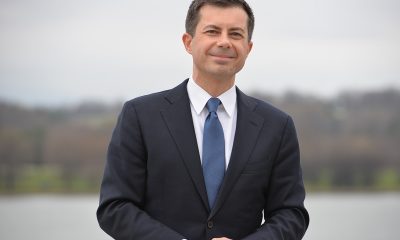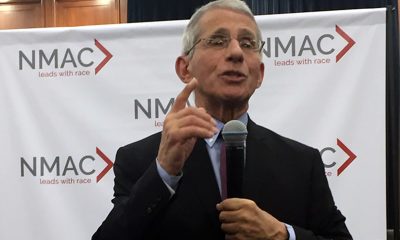Cannabis Culture
Cannabis Culture
National Cannabis Festival moved to Sept. 19
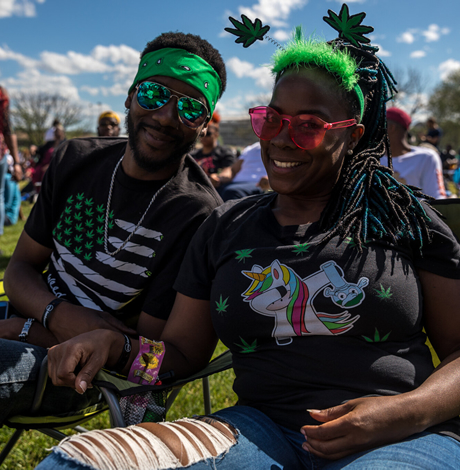
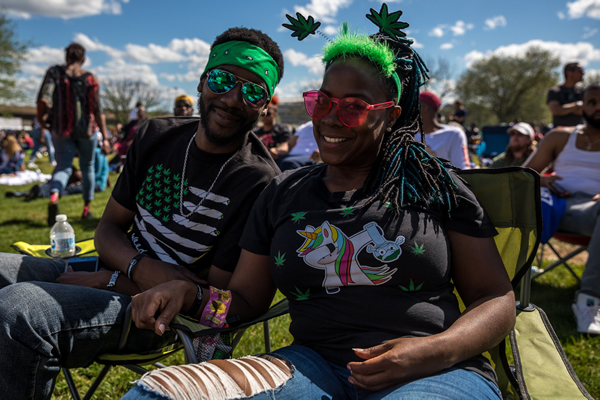
National Cannabis Festival moved to Sept. 19
The fifth annual National Cannabis Festival, originally scheduled for April, has been postponed to Saturday, Sept. 19 at RFK Festival Grounds in Washington, D.C. The move was precipitated by the coronavirus pandemic.
Organizers have announced a full day of live entertainment, including Method Man & Redman, Young M.A., Backyard Band, Antibalas and the Archives.
In the meantime, organizers will host the Highstream 420 Festival on April 20. Visit nationalcannabisfestival.com for information on how to participate.
You must be 21 and older with valid government-issued identification to attend the National Cannabis Festival. The National Cannabis Festival was founded in 2015 by a group of cannabis enthusiasts to celebrate marijuana legalization across the country.
Cannabis advocate dies from COVID-19 in Colo.
COLORADO SPRINGS, Colo. — Charlotte Figi, who brought international attention to the use of CBD-dominant extracts as anti-seizure agents, has passed away due to complications related to the COVID-19 virus, according to multiple news reports. She was 13 years old.
Charlotte Figi suffered from Dravet syndrome, a rare and highly debilitating form of childhood epilepsy. After conventional therapies failed to stabilize her condition, her parents eventually experimented with the use of cannabidiol-rich extracts. The administration of CBD extracts was associated with a dramatic reduction in Charlotte’s seizure frequency, and her case was eventually profiled in 2013 in a widely viewed CNN documentary hosted by Dr. Sanjay Gupta.
Commenting on her untimely passing, NORML Deputy Director Paul Armentano said: “Charlotte Figi personalized this issue in a way that few others have, and her story humanized the medical cannabis fight to such a degree that many politicians could no longer ignore it. There is little doubt that Charlotte’s story emboldened lawmakers in several southern and mid-western states to finally move forward to recognize the need for CBD, and in some cases, whole-plant cannabis access.”
In June 2018, the U.S. Food and Drug Administration approved Epidiolex, a prescription medicine containing a standardized formulation of plant-derived cannabidiol for the explicit treatment of two rare forms of severe epilepsy: Lennox-Gastaut syndrome and Dravet syndrome.
2 of 5 dispensaries shut down in Iowa
DES MOINES, Iowa — Two of the state’s five licensed medical cannabis access facilities have shut their doors, according to media reports.
The closures leave only three operating dispensaries left in the state. Iowa has only one licensed cultivation center. According to the Iowa Department of Health, an estimated 4,300 are registered to access cannabis extract products. Under state law, those extracts must not contain percentages of THC in excess of three percent. Legislation advanced by lawmakers last year to remove the low-THC cap was ultimately vetoed by Republican Gov. Kim Reynolds.
Following the recent closures, Democratic state Sen. Joe Bolkom said: “Iowa has the most bureaucratic, expensive, and ineffective program in the country and it just got worse… More evidence is now in with two of our dispensaries essentially going out of business because it’s economically not feasible.”
Under the state’s access law, there can be no more than five licensed dispensaries operating in the state at one time.
Fewer vaping illnesses in states with legal cannabis
Bloomington, Ind. — Incidences of the vaping-related lung illness EVALI (e-cigarette or vaping product use-associated lung injury) are primarily concentrated to jurisdictions where adult-use cannabis consumption is prohibited, according to data published in the Journal of the American Medical Association (JAMA) Network Open.
Commenting on the findings, NORML Executive Director Erik Altieri said, “These findings come as little surprise. In jurisdictions where cannabis is legally regulated, consumers gravitate toward the above-ground retail marketplace where they can access lab-tested products manufactured by licensed businesses.”
He added, “Just like alcohol prohibition gave rise to the illicit production of dangerous ‘bathtub gin,’ marijuana prohibition provides bad actors, not licensed businesses, the opportunity to fulfill consumers’ demand – sometimes with tragic results.”
According to the U.S. Centers for Disease Control and Prevention, nearly 3,000 people have sought hospitalization because of the illness, which peaked last September, and nearly 70 people died as a result of it. In November, the CDC publicly identified vitamin E acetate – a diluting agent sometimes present in counterfeit, unregulated vape pen products – as a primarily “culprit” in the outbreak.
Writing on Monday in the journal JAMA Network Open, researchers affiliated with Indiana University reported that last year’s sudden outbreak of EVALI cases was not driven by either state-level differences or prevalence in e-cigarette use. Rather, they reported that cases “were concentrated in states where consumers do not have legal access to recreational marijuana dispensaries… One possible inference from our results is that the presence of legal markets for marijuana has helped mitigate or may be protective against EVALI.”
A previous analysis of EVALI prevalence in legal cannabis markets versus illegal markets by Leafly.com drew a similar conclusion.
In a statement to the online news site MedPageToday.com, the study’s lead author said that the team’s findings are “consistent with the hypothesis that people have demand for marijuana products, and in states where they don’t have access to them in this regulatory fashion, they end up purchasing them elsewhere.”
Cannabis Culture news in the Blade is provided in partnership with NORML. Visit norml.org for more information.
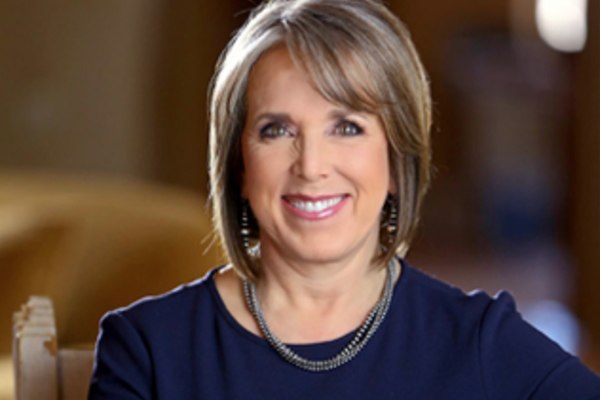
Democratic Gov. Michelle Lujan Grisham earlier this month signed two separate measures into law amending the state’s marijuana policies. The first measure (House Bill 2) legalizes and regulates marijuana possession, production, and sales for adults. The second measure (Senate Bill 2) facilitates the automatic review and expungement of the records of those convicted of low-level marijuana offenses.
Lawmakers approved both bills during a special legislative session demanded by Gov. Lujan Grisham, who had been a vocal proponent of the reforms.
NORML State Policies Manager Carly Wolf said: “This is a day to celebrate! New Mexico will greatly benefit from this new revenue stream and the creation of thousands of jobs. Most notably though, legalization will spare thousands of otherwise law-abiding residents from arrest and a criminal record, and the state’s new expungement law will help provide relief to many who are suffering from the stigma and other collateral consequences associated with a prior marijuana conviction.”
The adult-use measure (House Bill 2) permits those ages 21 and older to legally purchase up to two ounces of marijuana and/or up to 16 grams of cannabis extract from licensed retailers. It also permits adults to home-cultivate up to six mature plants for their own personal use. Retail sales would begin by April 2022.
The expungement measure (Senate Bill 2) stipulates that those with past convictions for offenses made legal under this act are eligible for automatic expungement of their records. Those currently incarcerated for such offenses are eligible for a dismissal of their sentence. It’s estimated that over 150,000 New Mexico residents are eligible for automatic expungement under this measure, according to the Department of Public Safety.
Cannabis Culture news in the Blade is provided in partnership with NORML. Visit norml.org for more information.
Cannabis Culture
Delaware cannabis activists take on corporate marijuana
Criticism from medical marijuana operators claimed that HB150 offers too many cultivation and retail licenses
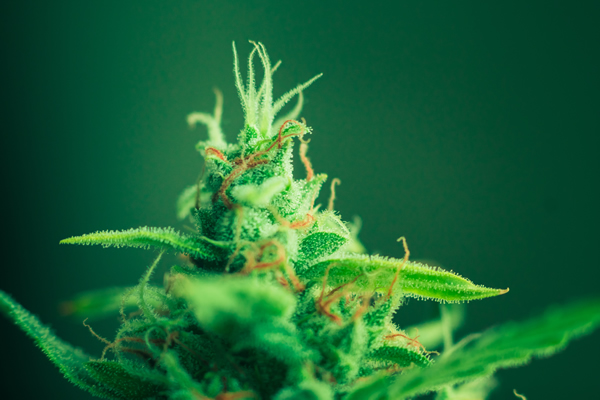
As the country moves forward with sweeping changes in cannabis policy reform, locals in Delaware are tangling with corporate, multi-state medical marijuana permit holders to pass a bill for full legalization.
Adult-use activists and registered medical patients were stunned to hear opposing testimony from Delaware’s medical marijuana operators. Patients already deal with limited access and costly products. Now, many see the established industry voicing opposition as simply obstructing the progress of adult-use legislation. In response, some patients are now staging a boycott of the regulated dispensaries.
During the first committee hearing for HB150, Delaware’s adult-use bill, four of the state’s six currently licensed, multi-million dollar medical cannabis facilities offered negative testimony.
Zoë Patchell, executive director of Delaware CAN responded: “This market belongs to the long-time consumers, patients, and activists. We create the demand, we’ve been the ones driving the reform efforts, and we pay the prices at dispensaries. Cannabis is more than a market – cannabis is a community. These companies cannot reasonably fathom that we are going to purchase cannabis from any entity that has proven to put profits over patients. And now they seem willing to put consumers’ lives and freedom at risk just to hold out for an unfair advantage in the industry.”
These included publicly traded Columbia Care, “Fresh Delaware” aka CCRI, CannTech Research Inc., and the owner of EZY Venture aka “The Farm.”
They all went on record condemning HB150, and pushing a false narrative about oversupply. The core demand from the permit cartel was some protection for their private business interests with guaranteed adult-use licenses.
Criticism from the medical marijuana operators claimed that HB150 offers too many new cultivation and retail licenses, underlined by deep yet unfounded fears that the new competition would put their companies out of business.
Patchell noted, “We are not going to sit back while multi-state corporate entities, that already monopolize East Coast medical markets, work to undermine our social equity and micro-license provisions.”
Cannabis Culture news in the Blade is provided in partnership with NORML. Visit norml.org for more information.
Cannabis Culture
Virginia marijuana legalization takes effect July 1
Adult possession of cannabis up to one ounce without penalty

Following legislative approval of Democratic Gov. Ralph Northam’s amendments to Senate Bill 1406 and House Bill 2312, Virginia became the first southern state to legalize the possession and use of marijuana by adults.
Senate Bill 1406, introduced by Sen. Adam Ebbin (D-30) and Senate President Pro Tempore Senator Louise Lucas (D-18), and House Bill 2312, patroned by House Majority Leader Delegate Charniele Herring (D-46), establish a statutory timeline for the legalization of the commercial marijuana market in Virginia. The measure also permits for the personal possession and cultivation of cannabis by those ages 21 or older.
Last week, Gov. Northam recommended changes to the legislation to permit the personal use provisions of the law to take effect on July 1, 2021 rather than on January 1, 2024, the enactment date initially approved by lawmakers. A majority of the legislature concurred with that change.
Therefore, beginning July 1, 2021, adults will be permitted to possess up to one ounce of marijuana and to cultivate up to four cannabis plants per household without penalty.
The timeline by which state regulators have to enact provisions licensing commercial cannabis production and sales remains July 1, 2024.
Commenting on final passage, NORML Development Director Jenn Michelle Pedini, who also serves as executive director of Virginia NORML, said: “This is an incredible victory for Virginia. Legalization will bring an end to the thousands of low-level marijuana infractions occurring annually in the Commonwealth — ending a discriminatory practice that far too often targets Virginians who are young, poor, and people of color.”
Majority Leader Charniele Herring added: “It is a huge day for equity in the Commonwealth. Virginia is now the first state in the South to legalize recreational marijuana use, and I am so proud to have been able to carry this monumental legislation.”
Sen. Ebbin said, “The passage of SB1406 caps off years of struggle to reform our broken and outdated marijuana laws and begins the deliberate steps to repeal the harms of the failed prohibition. I am thankful to NORML, the governor, and my colleagues for moving this 283 bill from inception to passage over the last four months, and look forward to continuing to partner with them to establish a regulated, equity focused, adult-use marketplace in the coming years.”
Newly released statewide polling data finds that 68 percent of registered voters in Virginia, including majorities of Democrats and Republicans, support legalizing marijuana for adults.
Additional amendments added by Gov. Northam will allow the sealing of records related to crimes involving the misdemeanor possession of marijuana with the intent to distribute. Those records will begin to be sealed starting on July 1, 2021. Separate legislation enacted in 2020 previously sealed records related to misdemeanor marijuana possession.
Records specific to the simple possession of marijuana and/or misdemeanor possession with intent to distribute records will be automatically expunged no later than 2025. Those with records specific to crimes involving the felony possession of marijuana with the intent to distribute may begin to petition the courts for an expounging of their records in 2025.
The bill also allows for the re-sentencing of individuals currently incarcerated for marijuana-related offenses. The measure permits those individuals to have a hearing before the court that originally sentenced them, with legal counsel provided for indigent individuals. However, this portion of the bill must be reenacted in 2022.
The legislation also establishes an independent agency, the Virginia Cannabis Control Authority, to oversee the establishment of regulations that will govern the adult-use market. This agency is set to convene this summer. The remainder of the 300-page bill, which details the regulatory and market structure and social equity provisions, is subject to a second review and vote by the Assembly next year.
Cannabis Culture news in the Blade is provided in partnership with NORML. Visit norml.org for more information.



